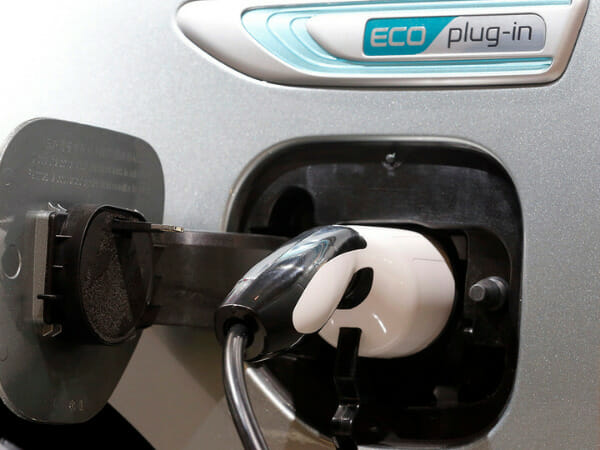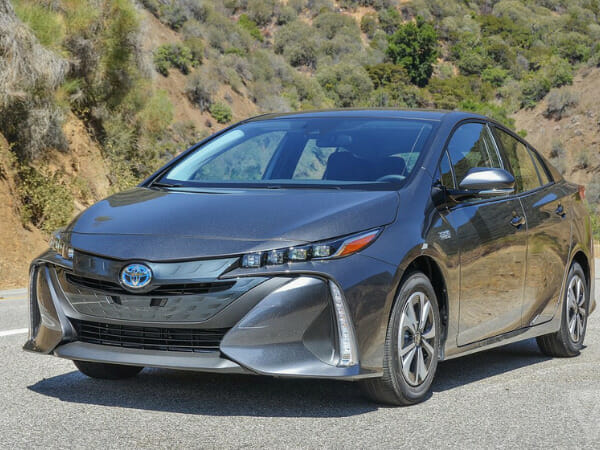Hybrid vs. Plug-In Hybrid Cars – Knowing the Key Differences
In our growing world, where new technology comes out every day in the automotive industry, we find ourselves not quite knowing everything, and it can be quite hard to keep up.
One of the newest inventions of the century has been electric cars, hybrid cars, and plug-in hybrids. Surely, we all have a lot of questions regarding the new cars like what is it? How does it operate? What are the pros and cons? What even are the differences between hybrids and plug-ins?
Rest assured that before the end of this article, you will know plenty about both machinery and more!
In 2024, several pure and new electric model cars will come out. The new batch of new EVs, plug-in EVs, and regular hybrids are amazing if you’re in the market for an alternate version of fuel vehicles.
These electrified vehicle models make energy-efficient transportation possible while lowering and eliminating carbon emissions, reducing noises, and diminishing operation costs of cars.
However, before you decide to venture into buying electrified vehicles, ensure you know and understand how they work ( especially pure Evs) – seeing as they don’t work as a normal gasoline-powered car.
It is also important to know their strength and weaknesses alongside your general preferences.
Now, you might be wondering if you should just stay with the regular gasoline-electric hybrid that you don’t need to insert into a socket? Most people know them to be reliable and fuel-efficient, but they do emit substances, not as much as an ordinary plain car but still.
Or is the plug-in more to your liking? The rechargeable batteries of the plug-ins run for over 20 to 40 miles of electric range before tapping into the gasoline engine like a traditional hybrid.
Or are you more into an EV? The EV doesn’t have a gas engine, but it is a convenient and better way to recharge.
With all these in mind, let’s dive right into this epic technologically advanced world and the details of how they work. Here’s all you need to know on plug-in hybrids vs. hybrids.
Hybrid electric vehicle (HEV)
Any vehicle that is hundred percent gasoline-fueled but doesn’t completely rely on the gasoline engine alone is a hybrid electric vehicle in the automotive world.
It has a rechargeable battery which powers the car and delays the use of the engine (gasoline).
However, there are some instances where both systems work together for additional power. Hybrid cars include:
- Lexus RX 450h
- Toyota Prius
- Honda Accord Hybrid
Plug-in Hybrid Vehicle (PHEVs)

Photo Credit: auto.howstuffworks.com
A plug-in hybrid vehicle (PHEV) is an electric car with a battery size bigger than a hybrid. You recharge it using an external power source. It is more or less another hybrid version.
These PHEVs use regenerative braking for fuel to be saved. It functions a lot like an electric car, which means its gasoline engine is at rest when its battery is charged, and the engine picks up when the car runs out of battery. Furthermore, it can switch back to using its gasoline or diesel engine as a conventional HEV when the car’s battery runs down. Therefore, there will be no range anxiety.
Most PHEVs are passenger cars, while some are commercial cars and vans, buses, trains, motorcycles, military vehicles, and the like.
PHEVs include the following;
- Toyota Prius Prime
- BMW 530e
- Chrysler Pacifica Hybrid
It is interesting to note that you can drive most, if not all, plug-in cars between 20-30 miles on a single charge. Guaranteed!
Some even claim as many as 50 miles and above on electricity alone without an engine to carry on. An example of such a vehicle is the latest BMW X5 ×Drive45e
Although PHEVs are great, they’re not the best choice for longer journeys. This is because your journey will be powered solely by a petrol or diesel engine if you can’t find a charging station nearby.
Read More: The Best Electric Bikes
Electric Vehicle (EV)
An electric vehicle is a car that has an electric motor that is significantly powerful and can be relied on to deliver a reasonable, adequate range and performance.
It can run without you needing an engine or gas tank at all. Also, it runs on electric energy, pure electric power, making it a fully electric vehicle. There are a lot of fully electric cars, including the Ford Mustang Mach-E, the Nissan Leaf, and the Tesla Model 3.
The Main Difference – Plug-in Hybrid vs. Hybrid

Photo Credit: www.theverge.com
The plug-in, commonly known as plug-in hybrid electric vehicles (PHEVs), are known to have both an internal combustion and also a battery.
While the car battery and engine of a hybrid car are connected, plug-in cars have systems that operate separately, with battery sizes, in contrast to the regular hybrid, which has a small battery.
A lot of manufacturers have decided to take things another step further by adding larger batteries to hybrid vehicles, which has resulted in plug-in hybrids. The extra batteries let you recharge the car by plugging them into either a 120 volt or a 240 volt charging unit in charging stations. The Plug-in cars help in fuel economization.
Another factor to consider is recharging times. The recharge time for a typical plug-in hybrid like the Prius Prime&, rated at 25 electric-only miles, takes over 5.5 hours with the 120-volt current charger and about 2 hours with the 240-volt charger.
This car can charge the batteries in advance, making it possible to drive purely on electric power, with no fuel needed, unlike the hybrid car. Plug-in cars are known to go over 25 miles or more, but the fuel serving capability of the PHEVs needs a much larger battery pack for lengthy trips. In such situations, it uses electricity driving first before the internal combustion of the car decides to kick in and share some of the load.
Because of the above factors, alongside the extra software and hardware, you may have to buy it for a much higher price than that of a standard hybrid. For example, a Prius plug-in hybrid Is known to cost a lot more than a base Prius. Still, keep in mind that a plug-in can’t always just be plugged indefinitely; but you are fine as long as you refill the gas often.
Hybrid vs. Plug-in Hybrid Cars— Pros & Cons
An electrifying view. With a modern and sophisticated design paired with efficient Plug-In Hybrid and 48-volt Mild Hybrid options, the new #RangeRover #Velar is more desirable than ever. Build yours: https://t.co/abZyVuR3NC pic.twitter.com/JrfC12fOMX
— Land Rover (@LandRover) October 8, 2020
In the marketplace, many people are prone to mixing up Hybrids and plug-in hybrids very often.
You may have questions like which is the superior machine? Which one is the better choice to go with? Well, it certainly depends on which criteria and circumstances you are judging it with.
You can rely on a hybrid to be driven anywhere and everywhere because it is completely fueled with a gasoline engine without a hassle. Plug-in can be used regularly too. They can provide enough electric range to ensure you don’t use gas much after regularly.
Essentially, all you need is a battery pack, although you have to plug them in regularly for the electric power part to work. This is because it can’t always be in electric mode. With all this considered, it generally makes plug-in hybrid cars more expensive than regular hybrids.
To give a better picture of these vehicles, here are the pros and cons of each electric car:
Pros
- It is inexpensive – If you compared to other electric vehicles known to man, the HEV seems to be the one that is relatively less expensive.
- Fast fill-ups – The car makes it easy for you to just drive into any gas station to fill up your fuel tank and be good to go.
- No plugin worries – With these vehicles, you don’t have to worry about plugging them in, unlike plug-in electric vehicles.
- Eco-friendly – It is very eco-friendly because carbon dioxide emissions can be reduced based on the proportion of gas used. It also reduces tailpipe emissions.
- Fuel economy – It has very low fuel consumption because the electric motors help speed up the car and reduce fuel consumption.
- More torque
Cons
- Not much gas-saving attention – Unlike the plug-in, the hybrid doesn’t have as much gas-saving attention as its counterpart.
- No rated electric range – Hybrid cars do not have a rated electric range.
- Low power gas engine – The HEV typically has low power in its gas engine.
Also, here are the pros and cons of plug-in hybrid cars:
Pros
- Dependable – PHEV functions so satisfactorily that you don’t need another car. You can even make it your primary vehicle or only car.
- Dual-action – PHEV can run out of electricity, yet you can keep driving it. This is due to its gasoline engine, which only activates when it runs out of battery.
- Reliable – You can take an HEV along for road trips because it is not likely to stop when electricity runs out. The gasoline engine will always be there for you.
- EV alike – PHEV can serve as an electric vehicle during a tight weekday schedule.
- PHEV suits an urban lifestyle.
- There is no range of anxiety.
Cons
- Higher cost
- It practically costs more than any other regular hybrid.
- Partially gasoline active
- It has a short electric driving duration. Thus, you cannot ignore or avoid gasoline.
- Regular charging.
- You need to regularly plug it in (though it might not need 240-volt equipment)
- Extra weight affects drive.
- Its engine’s economy is not great.
- Owners need charging facilities.
Frequently Asked Questions About Hybrid and Plug-in Hybrid Cars
Plug-in vehicle demand continues to grow in November:
🔋Battery electric vehicles grew to 18.8% of the market, with 21,726 vehicles – more than double compared with November 2020
🔌Plug-in hybrid vehicles’ (PHEVs) share grew to 9.3% or 10,796 vehicleshttps://t.co/JHvwRb3Shn pic.twitter.com/8w4XrCaPN0
— SMMT (@SMMT) December 7, 2021
What are the two kinds of hybrids?
A parallel Hybrid and a Series-Parallel Hybrid.
When does one motor take over the other?
When the car travels below a certain speed, the electric motor drives the wheels. On the other hand, the gasoline engine drives the wheels when it travels over a certain speed.
When did the first hybrid come out?
The first gasoline-electric hybrid came out in 1917.
Why are hybrids more expensive?
There are two reasons why hybrids are more costly.
- It’s because conventional cars have been around long before the invention of Hybrids. The risk of having to do a widespread recall is much lower on cars using conventional and proven technologies
- A hybrid drive system is far more expensive than a conventional gasoline motor. They require an electric motor battery storage system, as well as a system to generate and reclaim the energy that is inside the battery.
How do hybrid cars differ from electric cars?
They are different because they comprise two motors – the one that uses a gasoline engine and the electric motor.
Related Articles
Conclusion
When you look at all the pros & cons and try to decipher which is better among the electric vehicles, you may likely just end up going with whatever car that has features you prefer.
Nonetheless, the difference between the two electric cars is clear. One runs 100% on fuel while the other has a larger battery connected to charging stations and electric motors.
So the choice comes down to electric motors vs. bigger batteries? We’ll let you be the judge.

